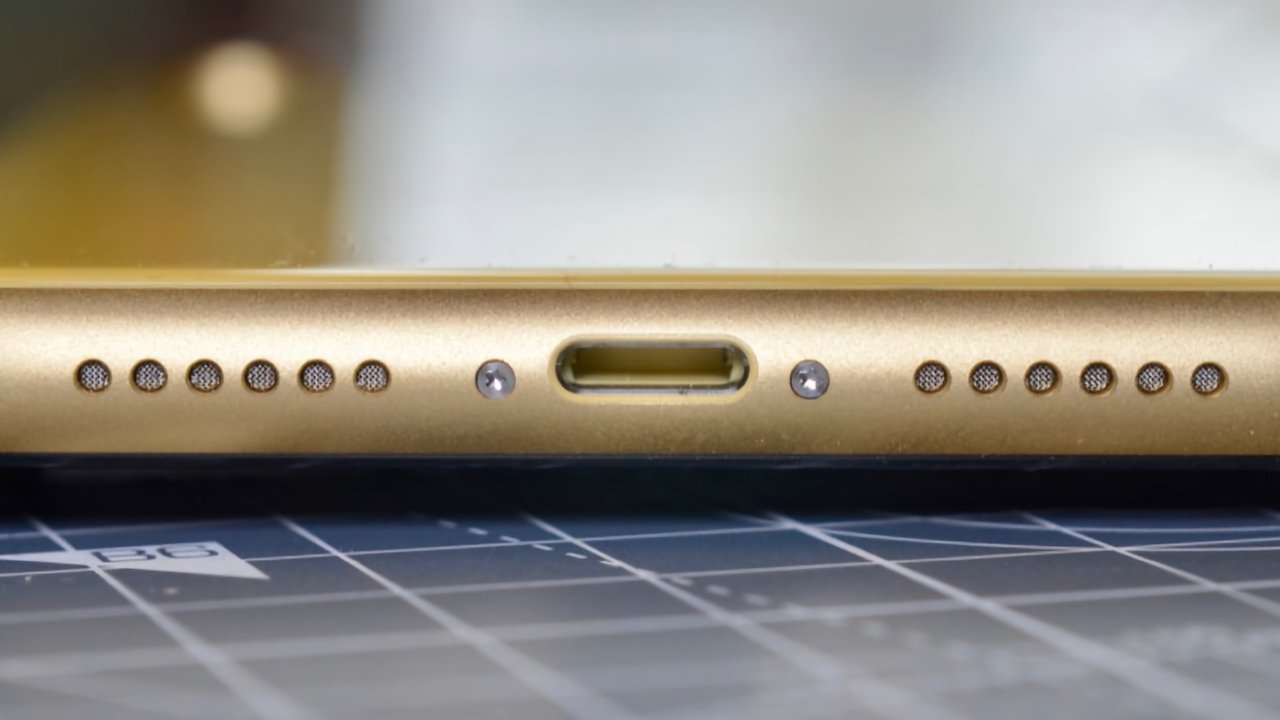Brazil joins fight to make USB-C standard on iPhone
Brazil is now the third country to call for Apple to replace its Lightning connector with the USB-C standard, citing that the change could help reduce electronic waste.

In early June, the European Union put forth new rules that would require all smartphones to utilize the USB-C standard for charging.
Shortly after, U.S. senators called on the U.S. Commerce Department mandate a universal common charger standard.
Now, Brazil has also called for universal charging support. But, like the EU, they believe Apple should swap its proprietary Lightning connector for the more widely-adopted USB-C.
According to Technoblog, as spotted by 9to5Mac, Brazilian regulators are pushing for smartphone manufactures to standardize their charging ports.
Anatel, the Brazilian regulatory agency, states that standardization would allow for greater consumer convenience.
Additionally, it believes that the move could reduce electronic waste by allowing customers to reuse chargers they already have.
Anatel's proposal would require companies to switch to USB-C by July 1, 2024.
The proposal does, however, allow for companies to move away from charging cables entirely. Any device that can only be recharged wirelessly would not be required to implement a USB-C charging port.
The agency is allowing Brazilians and tech companies to share their opinions about the project until August 26, 2022.
Apple may already be working on a USB-C iPhone. Apple analyst Ming-Chi Kuo says that the 2023 "iPhone 15" will abandon the Lightning connector and instead use USB-C.
Read on AppleInsider

In early June, the European Union put forth new rules that would require all smartphones to utilize the USB-C standard for charging.
Shortly after, U.S. senators called on the U.S. Commerce Department mandate a universal common charger standard.
Now, Brazil has also called for universal charging support. But, like the EU, they believe Apple should swap its proprietary Lightning connector for the more widely-adopted USB-C.
According to Technoblog, as spotted by 9to5Mac, Brazilian regulators are pushing for smartphone manufactures to standardize their charging ports.
Anatel, the Brazilian regulatory agency, states that standardization would allow for greater consumer convenience.
Additionally, it believes that the move could reduce electronic waste by allowing customers to reuse chargers they already have.
Anatel's proposal would require companies to switch to USB-C by July 1, 2024.
The proposal does, however, allow for companies to move away from charging cables entirely. Any device that can only be recharged wirelessly would not be required to implement a USB-C charging port.
The agency is allowing Brazilians and tech companies to share their opinions about the project until August 26, 2022.
Apple may already be working on a USB-C iPhone. Apple analyst Ming-Chi Kuo says that the 2023 "iPhone 15" will abandon the Lightning connector and instead use USB-C.
Read on AppleInsider

Comments
USBc-PD on all devices with a battery and no internal power supply.
Or PoE for things designed to be fixed (IP Cameras, Wifi, etc...)
Anything that might need an external transformer should be one of those.
However, as a result of the change, more devices will be interoperable in connection terms going forward, leading to less cables and less waste.
But what happens in 2 or 5 years when USB C is technically obsolete, but they are mandatory? Governmental bodies are going to christen the next standard for everyone?! Both here and in the EU, the whole idea is complete and utter BS!
One of the goals was not to stifle innovation.
In fact it has been mentioned in various announcements by the EU and the proposals were accommodating to new standards from the outset but in a harmonised manner.
Demanding the inventor of the iPhone use specific tech is stifling innovation. And the poster is right, if Apple were to invent a wireless standard what’s stopping these non-techies to force Apple to use something else because the iPhoneys aren’t compatible?
I don’t understand how some people don’t see the problem with governments controlling technology. The same governments that don’t understand technology.
Anyone can innovate but if everyone innovates in ways that impede interoperability it leads to new problems so it's better to harmonise certain technologies.
The 'inventor' of the iPhone has to comply with literally heaps of regulations on specific technologies. All over the phone!
Surely Apple’s little white chargers are the cause of everything. /s
Reminds me of the people who think that they will solve climate change by not using loop handle bags for their groceries. There’s bigger issues they are ignoring.